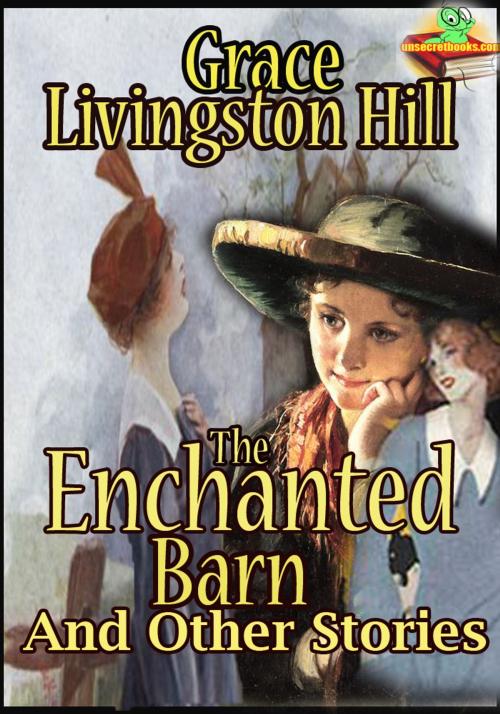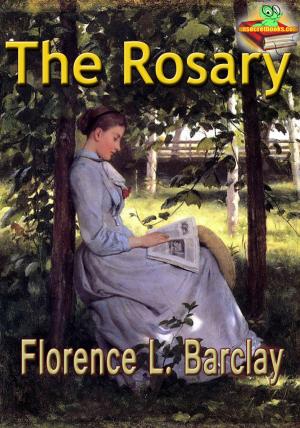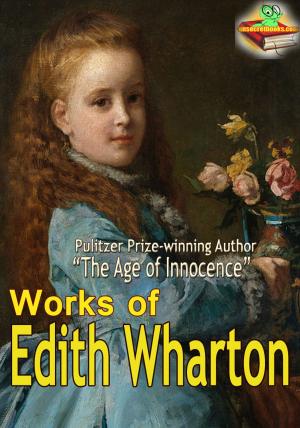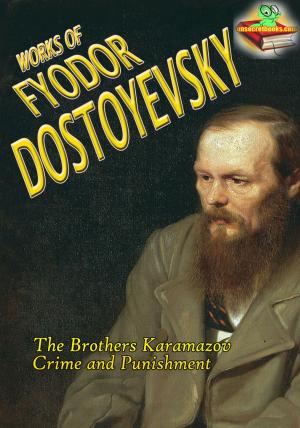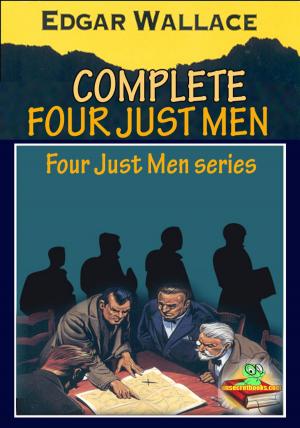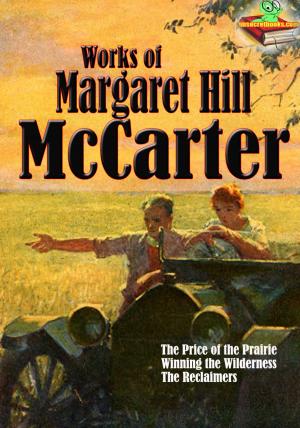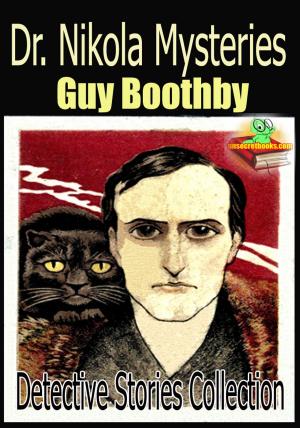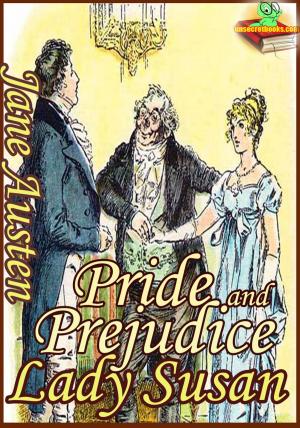The Enchanted Barn : and Other Stories (Cloudy Jewel, Marcia Schuyler, The Girl from Montana)
(4 Timeless Romantic Fiction with audiobook link)
Romance, Inspired Romance, Fiction & Literature, Historical| Author: | Grace Livingston Hill | ISBN: | 1230000101903 |
| Publisher: | Unsecretbooks.com | Publication: | January 23, 2013 |
| Imprint: | Language: | English |
| Author: | Grace Livingston Hill |
| ISBN: | 1230000101903 |
| Publisher: | Unsecretbooks.com |
| Publication: | January 23, 2013 |
| Imprint: | |
| Language: | English |
This book is contained 4 works of Grace Livingston Hill, who was Known today as The Queen of Christian Romance. She was an American novelist who sold over a million novels in her lifetime. A very popular author, Hill published hundreds of inspirational novels and short stories, often featuring young female characters who face dramatic turning points, and their eventual return to grace.
“The Enchanted Barn”
There was no one else in the inner office where she sat. Mr. Barnard, the senior member of the firm, whose stenographer she was, had stepped into the outer office for a moment with a telegram which he had just received. His absence gave Shirley a moment's respite from that feeling that she must keep strained up to meet his gaze and not let trouble show in her eyes, though a great lump was choking in her throat and the tears stung her hot eyelids and insisted on blurring her vision now and then. But it was only for an instant that she gave way. Her fingers flew on with their work, for this was an important letter, and Mr. Barnard wanted it to go in the next mail. As she wrote, a vision of her mother's white face appeared to her between the lines, the mother weak and white, with tears on her cheeks and that despairing look in her eyes. Mother hadn't been able to get up for a week. It seemed as if the cares of life were getting almost too much for her, and the warm spring days made the little brick house in the narrow street a stifling place to stay. There was only one small window in mother's room, opening against a brick wall, for they had had to rent the front room with its two windows.
“Cloudy Jewel”
Julia Cloud had turned about, and was facing her sister calmly now. Her quiet voice seemed to irritate Ellen. “What nonsense!” she said sharply. “How exceedingly childish, letting yourself be ruled by whims, when common sense must show you that you are wrong. I wonder if you aren’t ever going to be a woman.” Ellen said this word “woman” as if her sister had already passed into the antique class and ought to realize it. It was one of the things that hurt Julia Cloud to realize that she was growing old apparently without the dignity that belonged to her years, for they all talked to her yet as if she were a little child and needed to be managed. She opened her lips to speak, but thought better of it, and shut them again, turning back to the window and the gray, sodden landscape. “Well, as I said before, you’re a very foolish woman; and you’ll soon find it out. I shall have to go and leave you to the consequences of your folly. I’m sure I don’t know what Herbert will say when he finds out how you’ve scorned his kindness. It isn’t every brother-in-law would offer––yes, offer, Julia, for I never even suggested it––to take on extra expense in his family. But you won’t see your ingratitude if I stand here and talk till doomsday; so I’m going back to my children. If you come to your senses, you can ride out with Boyce Bains to-morrow afternoon. Good-by, and I’m sure I hope you won’t regret this all your life.”
“Marcia Schuyler”
The sun was already up and the grass blades were twinkling with sparkles of dew, as Marcia stepped from the kitchen door. She wore a chocolate calico with little sprigs of red and white scattered over it, her hair was in smooth brown braids down her back, and there was a flush on her round cheeks that might have been but the reflection of the rosy light in the East. Her face was as untroubled as the summer morning, in its freshness, and her eyes as dreamy as the soft clouds that hovered upon the horizon uncertain where they were to be sent for the day. Marcia walked lightly through the grass, and the way behind her sparkled again like that of the girl in the fairy-tale who left jewels wherever she passed. A rail fence stopped her, which she mounted as though it had been a steed to carry her onward, and sat a moment looking at the beauty of the morning, her eyes taking on that far-away look that annoyed her stepmother when she wanted her to hurry with the dishes, or finish a long seam before it was time to get supper.
“The Girl from Montana”
She could see the tiny baby sister lying there in the middle of the room, so little and white and pitiful; and her handsome, careless father sitting at the head of the rude home-made coffin, sober for the moment; and her tired, disheartened mother, faded before her time, dry-eyed and haggard, beside him. But that was long ago, almost at the beginning of things for the girl. There had been other funerals, the little brother who had been drowned while playing in a forbidden stream, and the older brother who had gone off in search of gold or his own way, and had crawled back parched with fever to die in his mother’s arms. But those, too, seemed long ago to the girl as she stood in the empty cabin and looked fearfully about her. They seemed almost blotted out by the last three that had crowded so close within the year. The father, who even at his worst had a kind word for her and her mother, had been brought home mortally hurt—an encounter with wild cattle, a fall from his horse in a treacherous place—and had never roused to consciousness again. At all these funerals there had been a solemn service, conducted by a travelling preacher when one happened to be within reach, and, when there was none, by the trembling, determined, untaught lips of the white-faced mother. The mother had always insisted upon it, especially upon a prayer. It had seemed like a charm to help the departed one into some kind of a pitiful heaven.
This book is contained 4 works of Grace Livingston Hill, who was Known today as The Queen of Christian Romance. She was an American novelist who sold over a million novels in her lifetime. A very popular author, Hill published hundreds of inspirational novels and short stories, often featuring young female characters who face dramatic turning points, and their eventual return to grace.
“The Enchanted Barn”
There was no one else in the inner office where she sat. Mr. Barnard, the senior member of the firm, whose stenographer she was, had stepped into the outer office for a moment with a telegram which he had just received. His absence gave Shirley a moment's respite from that feeling that she must keep strained up to meet his gaze and not let trouble show in her eyes, though a great lump was choking in her throat and the tears stung her hot eyelids and insisted on blurring her vision now and then. But it was only for an instant that she gave way. Her fingers flew on with their work, for this was an important letter, and Mr. Barnard wanted it to go in the next mail. As she wrote, a vision of her mother's white face appeared to her between the lines, the mother weak and white, with tears on her cheeks and that despairing look in her eyes. Mother hadn't been able to get up for a week. It seemed as if the cares of life were getting almost too much for her, and the warm spring days made the little brick house in the narrow street a stifling place to stay. There was only one small window in mother's room, opening against a brick wall, for they had had to rent the front room with its two windows.
“Cloudy Jewel”
Julia Cloud had turned about, and was facing her sister calmly now. Her quiet voice seemed to irritate Ellen. “What nonsense!” she said sharply. “How exceedingly childish, letting yourself be ruled by whims, when common sense must show you that you are wrong. I wonder if you aren’t ever going to be a woman.” Ellen said this word “woman” as if her sister had already passed into the antique class and ought to realize it. It was one of the things that hurt Julia Cloud to realize that she was growing old apparently without the dignity that belonged to her years, for they all talked to her yet as if she were a little child and needed to be managed. She opened her lips to speak, but thought better of it, and shut them again, turning back to the window and the gray, sodden landscape. “Well, as I said before, you’re a very foolish woman; and you’ll soon find it out. I shall have to go and leave you to the consequences of your folly. I’m sure I don’t know what Herbert will say when he finds out how you’ve scorned his kindness. It isn’t every brother-in-law would offer––yes, offer, Julia, for I never even suggested it––to take on extra expense in his family. But you won’t see your ingratitude if I stand here and talk till doomsday; so I’m going back to my children. If you come to your senses, you can ride out with Boyce Bains to-morrow afternoon. Good-by, and I’m sure I hope you won’t regret this all your life.”
“Marcia Schuyler”
The sun was already up and the grass blades were twinkling with sparkles of dew, as Marcia stepped from the kitchen door. She wore a chocolate calico with little sprigs of red and white scattered over it, her hair was in smooth brown braids down her back, and there was a flush on her round cheeks that might have been but the reflection of the rosy light in the East. Her face was as untroubled as the summer morning, in its freshness, and her eyes as dreamy as the soft clouds that hovered upon the horizon uncertain where they were to be sent for the day. Marcia walked lightly through the grass, and the way behind her sparkled again like that of the girl in the fairy-tale who left jewels wherever she passed. A rail fence stopped her, which she mounted as though it had been a steed to carry her onward, and sat a moment looking at the beauty of the morning, her eyes taking on that far-away look that annoyed her stepmother when she wanted her to hurry with the dishes, or finish a long seam before it was time to get supper.
“The Girl from Montana”
She could see the tiny baby sister lying there in the middle of the room, so little and white and pitiful; and her handsome, careless father sitting at the head of the rude home-made coffin, sober for the moment; and her tired, disheartened mother, faded before her time, dry-eyed and haggard, beside him. But that was long ago, almost at the beginning of things for the girl. There had been other funerals, the little brother who had been drowned while playing in a forbidden stream, and the older brother who had gone off in search of gold or his own way, and had crawled back parched with fever to die in his mother’s arms. But those, too, seemed long ago to the girl as she stood in the empty cabin and looked fearfully about her. They seemed almost blotted out by the last three that had crowded so close within the year. The father, who even at his worst had a kind word for her and her mother, had been brought home mortally hurt—an encounter with wild cattle, a fall from his horse in a treacherous place—and had never roused to consciousness again. At all these funerals there had been a solemn service, conducted by a travelling preacher when one happened to be within reach, and, when there was none, by the trembling, determined, untaught lips of the white-faced mother. The mother had always insisted upon it, especially upon a prayer. It had seemed like a charm to help the departed one into some kind of a pitiful heaven.
